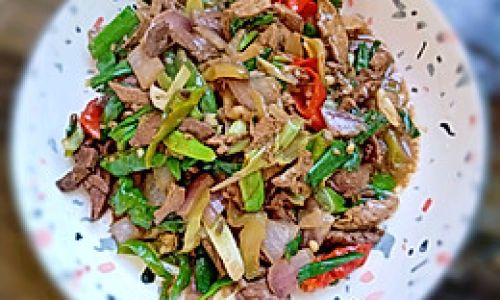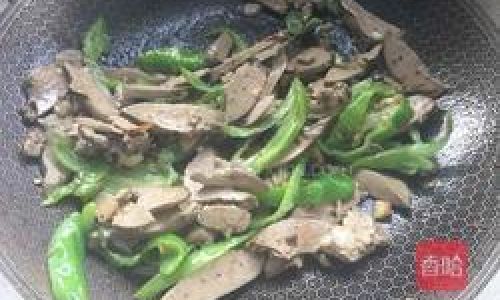Introduction
Cooking is an adventure that tantalizes the senses, but one challenge that home cooks and professional chefs alike often face is eliminating unwanted fishy or gamey odors from dishes. Whether you’re preparing seafood, poultry, or certain types of meat, the lingering smell can overpower other flavors and leave an unpleasant aftertaste. Fortunately, culinary traditions worldwide have developed a repertoire of ingredients and techniques to neutralize these odors while enhancing the natural taste of the ingredients. This article explores the science behind these odors, the most effective deodorizing agents, and how to use them creatively in your kitchen. By understanding the chemistry of flavor and aroma, you can transform even the strongest-smelling proteins into delicious, aromatic meals.
The Science of Fishy Odors
Before diving into solutions, it’s essential to grasp why certain foods emit strong odors. Proteins like fish, shellfish, and some meats contain compounds called amines, which are produced as the protein breaks down. Trimethylamine (TMA) is a primary culprit in fishy smells, especially in species like salmon, mackerel, and tuna. When these amines interact with air, they release volatile molecules that our olfactory systems detect as unpleasant. Additionally, enzymes in meat and seafood accelerate the breakdown of proteins post-mortem, intensifying the odor over time.

The goal of deodorizing is not to mask the smell but to neutralize the chemical compounds responsible for it. This can be achieved through acidity, enzymatic reactions, or absorption of odor molecules. The right combination of ingredients and cooking methods can disrupt these compounds, leaving behind a clean, appetizing aroma.
Lemon and Citrus Fruits: Nature’s Deodorizers
Citrus fruits like lemons, limes, and oranges are powerhouses in combating fishy odors. Their high acidity (primarily citric acid) reacts with amines, converting them into non-volatile salts that no longer emit a smell. Additionally, the bright, fresh scent of citrus oils provides a pleasant counterbalance to lingering odors.
How to Use:
- Squeeze fresh lemon juice over raw fish or meat before cooking.
- Add citrus zest to marinades or sauces.
- Simmer citrus slices in cooking liquid for soups or stews.
- Use a mixture of lemon juice and water to rinse cutting boards or utensils after preparing seafood.
Pro Tip: For dishes like ceviche, where acidity “cooks” the fish, citrus not only deodorizes but also firms the texture.
Ginger: The Pungent Ally
Ginger contains zingiberene and other volatile oils that neutralize odors while adding a warm, spicy note. Its enzymatic properties break down protein chains, reducing the release of amines. In Asian cuisines, ginger is a staple for marinating fish or preparing seafood broths.
How to Use:
- Grate fresh ginger into marinades.
- Slice ginger and simmer it in cooking liquid.
- Pair ginger with garlic and soy sauce for a robust flavor profile.
Cultural Insight: In Japanese cooking, grated ginger (shoga) is served alongside sushi to cleanse the palate between bites.
Vinegar: Acidic Elegance
Vinegar, with its acetic acid content, is another acidic marvel for deodorizing. It works similarly to citrus by denaturing odor-causing proteins. White vinegar is mild enough for delicate dishes, while apple cider or red wine vinegar adds complexity.
How to Use:
- Marinate meat in a vinegar-based solution (e.g., 1:3 vinegar-to-water ratio).
- Deglaze pans with vinegar after searing fish or meat.
- Add a splash to sauces or braising liquids.
Caution: Avoid over-marinating, as vinegar can toughen meat if left too long (15–30 minutes is usually sufficient).
Wine and Alcohol: Evaporating Odors
Alcohol, particularly white wine or sake, evaporates quickly when heated, carrying away odor molecules. The ethanol in wine dissolves fatty compounds that trap smells, while its acidity provides a secondary deodorizing effect.

How to Use:
- Deglaze pans with wine after cooking fish.
- Add wine to simmering sauces or stews.
- Use sake in Japanese marinades for fish.
Pairing Tip: Match the wine to the dish’s flavor profile—dry white wine for light seafood, red wine for richer meats.
Milk and Dairy: The Surprising Solution
Dairy products like milk, yogurt, or buttermilk contain casein proteins that bind to odor-causing compounds, trapping them and preventing their release. This method is popular in Indian and Scandinavian cuisines for preparing fish.
How to Use:
- Soak fish in milk for 20–30 minutes before cooking.
- Use yogurt-based marinades for tandoori-style dishes.
- Add cream to sauces to mellow sharp odors.
Science Note: The lactic acid in dairy also contributes to tenderizing meat.
Aromatic Herbs: Freshness in Every Leaf
Herbs like cilantro, parsley, dill, and mint contain chlorophyll and essential oils that mask odors while adding vibrant flavor. Their fresh, green notes contrast with pungent smells.
How to Use:
- Chop herbs and mix into marinades.
- Garnish dishes with whole leaves post-cooking.
- Infuse oils or butters with herbs for finishing touches.
Cultural Insight: In Mediterranean cooking, parsley and lemon are a classic duo for grilled fish.
Onion and Garlic: Flavorful Deodorizers
While onions and garlic have strong aromas of their own, their sulfur compounds react with amines, reducing fishy smells. When sautéed, they release allicin, a compound with antimicrobial properties.
How to Use:
- Sauté minced garlic and onions as a base for sauces.
- Stuff whole garlic cloves into fish cavities before roasting.
- Caramelize onions to mellow their pungency.
Balance Act: Use sparingly to avoid overpowering the dish.

Soy Sauce and Fermented Ingredients
Fermented seasonings like soy sauce, miso, and fish sauce introduce umami while masking odors. Their high salt content denatures proteins, and their complex flavors distract the palate from lingering smells.
How to Use:
- Marinate meat in a soy sauce-based mixture.
- Add miso to broths or glazes.
- Use fish sauce sparingly in Southeast Asian dishes.
Pro Tip: Combine soy sauce with ginger and citrus for a trifecta of deodorizing power.
Baking Soda: The Kitchen Workhorse
Sodium bicarbonate (baking soda) is alkaline, neutralizing acidic odors. It’s particularly effective for meat like mutton or gamey poultry.
How to Use:
- Rub baking soda onto meat surfaces and let sit for 15–20 minutes before rinsing.
- Add a pinch to boiling water when blanching vegetables.
Caution: Overuse can leave a soapy aftertaste; rinse thoroughly after application.
Spices: Aromatic Firepower
Spices like cumin, coriander, turmeric, and black pepper contain volatile oils that override odors. Their antimicrobial properties also inhibit bacterial growth, which contributes to foul smells.
How to Use:
- Toast whole spices before grinding to release oils.
- Create spice rubs for meats.
- Add turmeric to marinades for its bright color and earthy flavor.
Cultural Insight: In Indian cuisine, a blend of spices called “garam masala” is used to flavor and deodorize meats.
Tomatoes and Acidic Vegetables
Tomatoes, tomatillos, and other acidic vegetables break down proteins through their natural acids. Their tangy flavor also complements seafood and meat.
How to Use:

- Simmer tomatoes into sauces or stews.
- Use tomatillos in salsas for grilled fish.
Pairing Tip: Tomatoes pair well with garlic and herbs for a robust base.
Mushrooms: Earthy Absorption
Mushrooms, particularly porcini or shiitake, contain compounds that absorb odors while adding umami. Their porous structure traps smelly molecules, making them ideal for braises or stocks.
How to Use:
- Add dried mushrooms to broths.
- Sauté fresh mushrooms with meat.
Science Note: Mushrooms’ enzymes also break down tough proteins, tenderizing meat.
Cooking Methods That Reduce Odors
Beyond ingredients, cooking techniques play a role:
- Grilling: High heat caramelizes proteins, reducing smells.
- Poaching: Gentle cooking in liquid minimizes odor release.
- Smoking: Aromatic woods like hickory or applewood impart flavor while masking smells.
The Role of Freshness
The fresher the ingredient, the fewer odor-causing compounds it contains. Always buy seafood from reputable sources and cook it promptly.
Common Mistakes to Avoid
- Overcooking: Dries out meat, intensifying smells.
- Using Too Much Acid: Can curdle dairy or toughen meat.
- Ignoring Pairing: Balance strong deodorizers with complementary flavors.
Cultural Variations in Deodorizing
- Asia: Ginger, soy sauce, and rice vinegar are staples.
- Europe: Wine, herbs, and lemon dominate.
- Latin America: Citrus, cilantro, and achiote paste.
- Middle East: Yogurt, garlic, and warm spices.
Conclusion
Eliminating fishy or gamey odors is as much an art as it is a science. By leveraging acidic ingredients, aromatic herbs, and strategic cooking techniques, you can transform potent-smelling proteins into culinary delights. Experiment with combinations—try lemon and ginger with white fish, or wine and herbs with chicken—to discover your favorite flavor profiles. Remember that freshness and moderation are key; even the most potent deodorizers can’t salvage spoiled ingredients. With practice, you’ll master the delicate balance of neutralizing odors while letting the true taste of your dish shine. Happy cooking!






0 comments